“By the end of this year, when someone sets up a new broadband account the settings to install family-friendly filters will be automatically selected. If you just click ‘next’ or ‘enter’, then the filters are automatically on,” David Cameron will announce today.
 The prime minister is on a moral crusade to protect the country’s children – a commendable cause – but is this really the way to go about it?
The prime minister is on a moral crusade to protect the country’s children – a commendable cause – but is this really the way to go about it?
Accepting the filters will supposedly stop adult material from being accessible from an Internet connection, but so far no one has been forthcoming about how this will be achieved. The prime minister does, however, indicate that this will be something controlled and administered remotely.
“And, in a really big step forward, all the ISPs have rewired their technology so that once your filters are installed, they will cover any device connected to your home internet account. No more hassle of downloading filters for every device, just one-click protection. One click to protect your whole home and keep your children safe,” he will say.
It seems likely that the ISPs will implement a system similar to the one currently being used by TalkTalk, as the prime minister will specifically single the ISP out for praise in his speech.
TalkTalk’s HomeSafe is a system which filters out URLs based on a remote blocklist provided and maintained by…..well, no one quite knows. This is worrying since when things don’t go quite to plan there’s no one to complain to.
As previously reported, when TalkTalk customers are asked whether they want to block file-sharing sites, TorrentFreak.com is rendered inaccessible. Despite our pleas and complaints that we are a news resource, the company said it would not remove us from their blocklist. We doubt we’re the only ones being silenced.
But of course, millions of households in the UK view adult material every day online anyway, so they will simply disable the filters when they get the chance. That’s just neutralized Cameron’s censorship efforts on that front in the blink of an eye. But there’s more.
The prime minister will also put search engines such as Google, Bing and Yahoo on notice that they will have to introduce further measures to block searches for illegal content such as child pornography. Google already has a zero-tolerance approach to images of child abuse so it’s not clear what more they can do, but they will have to says the PM.
“I have a very clear message for Google, Bing, Yahoo and the rest. You have a duty to act on this – and it is a moral duty. If there are technical obstacles to acting on [search engines], don’t just stand by and say nothing can be done; use your great brains to help overcome them.”
While few will argue against the need to protect children by cracking down on abusers, “illegal content” can take many forms – the law will shortly be updated to outlaw scenes of “simulated rape”, for example. The concern is that once ISPs and companies like Google are led down the censorship path, mission creep could come into play. Do they also have a “moral obligation” to protect, say, the content industries, once they have these systems in place?
The Cleanfeed system, first implemented in the by UK ISP BT, was designed to hide away images of abuse from Internet users but by 2011 it had been put to new use – blocking Usenet indexing site Newzbin2 following a court case initiated by the MPA. What began as “think of the children” eight years earlier later became “think of the copyright holders.” The chances seem high that history could repeat itself.
But it doesn’t stop there. If there is a moral obligation to censor on child safety grounds, will there also be calls to censor ‘potential’ terrorist material (and by whose definition) or those with extreme political views? If so, who will be the watchdog, and how transparent will his decisions be?
Finally, one should consider whether any of this is going to be effective in achieving its aims of stopping children becoming corrupted and abused. Frankly, it seems unlikely. Censorship of file-sharing sites is being carried out in the UK almost every month now and as time goes on users are becoming more and more adept at evading the blocks. A sampling of Twitter comments from the last few hours tells the story.
“Wow, they couldn’t even block Pirate Bay. Now they think they can take on porn. Morons,” said one unimpressed individual responding to BBC News.
“For the effectiveness of efforts to block anything on the internet see the ban on accessing the Pirate Bay,” said another.
Worryingly, if circumventing blocks is this easy for people casually looking for some MP3s or a TV show, imagine the simplicity for the hardened child abuser looking for his fix.
The solution is not to force ISPs and Google to hide this criminal behavior away in an effort to pretend it somehow doesn’t exist, but to hit it at its source. But the suggestion of how that may be achieved is also just a little bit scary.
According to the Guardian, the Child Exploitation and Online Protection Centre (CEOP) is going to draw up a list of “abhorrent” search terms to enable the identification of people searching for this content.
Monitored Google searches? We definitely haven’t heard the last of this.
Update: A petition against the government’s plans is gathering pace, with 11,000+ signatures in a day.
Source: Porn to be Blocked in the UK – “What’s new?” Say Pirate Bay Users






 facebook
facebook  reddit
reddit  Every week copyright holders send millions of DMCA takedown notices to Google in the hope of making pirated content harder to find.
Every week copyright holders send millions of DMCA takedown notices to Google in the hope of making pirated content harder to find.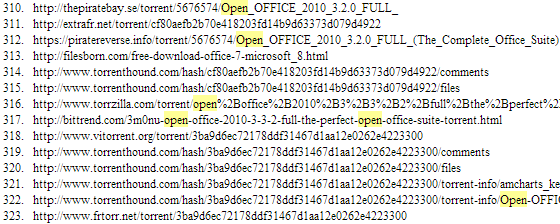


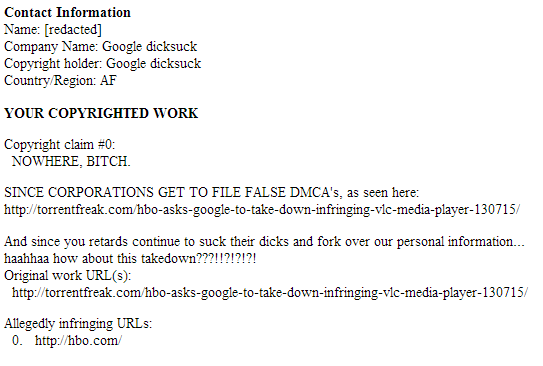


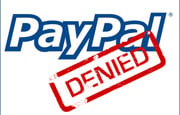 PayPal is widely known for their aggressive stance towards
PayPal is widely known for their aggressive stance towards  However, Sunde believes that they are covering something up.
However, Sunde believes that they are covering something up.

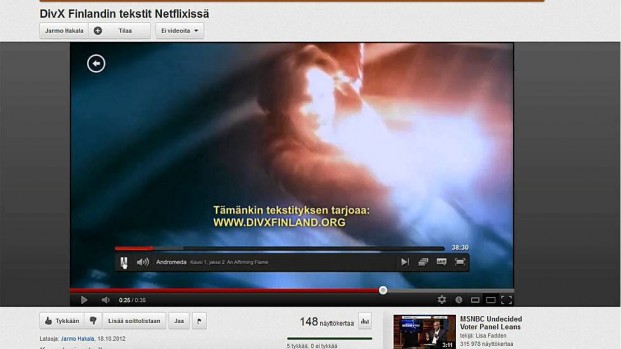
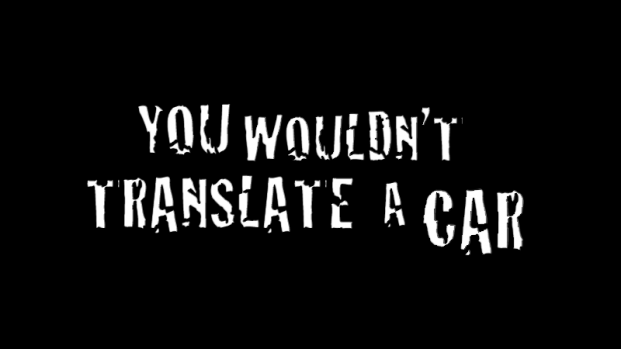
 Payment providers are increasingly taking action against sites and services that are linked to copyright infringement.
Payment providers are increasingly taking action against sites and services that are linked to copyright infringement. 



